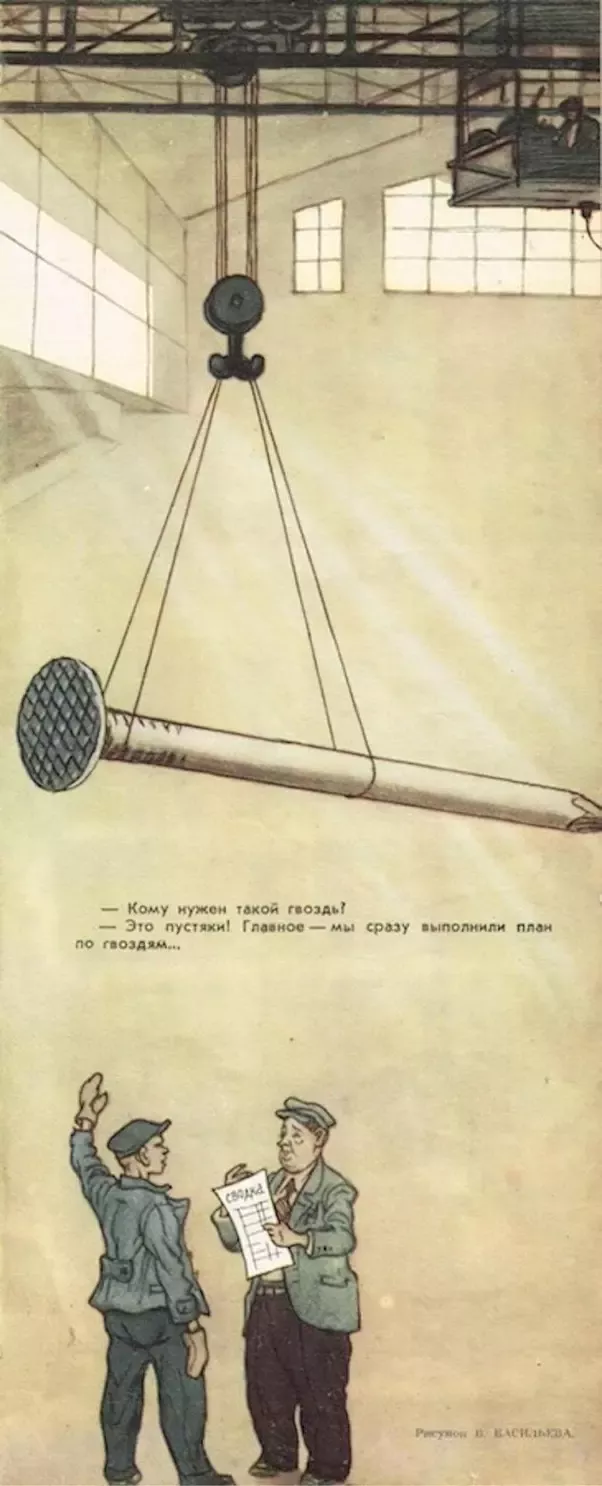The Soviet Union had a shortage of nails during Lenin’s time.
To increase production, his government started giving bonuses to the factories for the number of nails they produce.
After hearing about the bonus, the factories reduced the size of the nails to produce as many nails as possible.
In the end, they met the targets and got their bonuses. But the government ended up with millions of useless tiny nails.
To correct the mistake, the government updated the bonus target as the tonnage of nails produced every month.
Soviet factories quickly aligned their production.
They stopped producing the mini-nails and started producing huge ones that were so heavy.
At the end of the month, the factories met the target again and got their bonuses.
But again, the regime ended up with useless, giant nails that didn’t help with the nail shortage.

– It doesn’t matter, what’s important is that we fulfilled the plan for nails.
(Goodhart’s Law in action)
Now, this is an urban legend that we don’t know if it’s true. But it perfectly explains Goodhart’s Law which states: “When a measure becomes a target, it ceases to be a good measure.”
Measures become targets because incentives drive people. And it’s easy to end up with misaligned incentives.
Goodhart’s Law Examples
You can see it everywhere:
- A CEO of a bank is incentivized for yearly bonuses, not for the long-term health of the company. So a CEO might take unnecessary risks for short-term gains.
- A student is incentivized for the grades of the exams, not for the actual knowledge of the subject. So a student might cheat or memorize only to pass the exams.
- A customer service agent is incentivized for the results of a survey, not for the actual customer satisfaction. So an agent might be pushy to get more survey responses from customers.
While managing people or making business, keep an eye on the connection between the measures and desired outcomes to avoid crooked incentives.
Does optimizing for these measures create any unintended consequences? Do they help to achieve your goals or are these measures becoming your goals?
In a world where we are bombarded with metrics (likes, followers, visitors, NPS, etc.), remember to keep your focus on what matters.
“Never, ever, think about something else when you should be thinking about the power of incentives.”
Charlie Munger
Enjoyed this article?
Then you’ll love the How Brands Win Newsletter.
Get the “5 Mental Models to Differentiate Your Business” guide when you join. It’s free.
